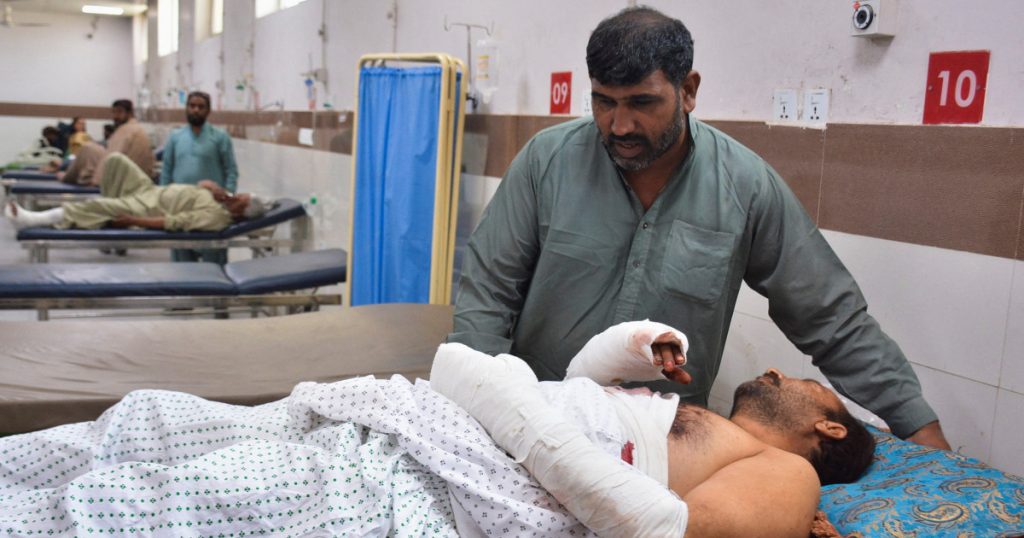A Pakistani truck driver, Munir Ahmed, was shot five times in one of the most widespread attacks by ethnic militants in Balochistan, Pakistan. He was driving with three colleagues in a convoy of four trucks when armed men stopped them on the highway outside Quetta. The gunmen ordered the drivers out of their trucks, lined them up on the roadside, and opened fire, throwing their bodies into a stream. Ahmed, initially thought to be dead, was rescued and taken to the hospital, where medical staff realized he had survived despite being shot multiple times.
The Baloch Liberation Army (BLA), an armed militant group seeking secession of Balochistan, claimed responsibility for the attacks that killed at least 70 people. Twenty-three civilians were pulled out of their vehicles and killed in front of their families during the violent assaults. The attacks and subsequent military operations caused chaos and devastation in the region, leaving many families mourning the loss of their loved ones. The violence highlights the ongoing conflict in Balochistan and the dangers faced by civilians, especially those working in vulnerable professions like truck driving.
Ahmed, recovering in the hospital with multiple gunshot wounds, expressed a mix of fear, uncertainty, and grief over the attack that resulted in the deaths of his colleagues. The traumatic experience has left him with hazy memories of the incident and concerns about his future. As a truck driver, Ahmed faced the risk of violence while transporting goods through dangerous areas, highlighting the challenges and dangers faced by those working in the transportation industry in conflict zones. The attack has disrupted his livelihood, leaving him unsure about what comes next and how he will move forward after such a violent incident.
The attack on Ahmed and his colleagues is part of a broader pattern of violence and conflict in Balochistan, where armed militant groups like the BLA continue to carry out attacks against security forces, civilians, and infrastructure. The secessionist movement in Balochistan has a long history of unrest and insurgency, fueled by grievances over economic disparities, political marginalization, and human rights abuses. The attacks on civilians, like Ahmed and his colleagues, are a tragic consequence of the ongoing conflict in the region and the struggles faced by ordinary people caught in the crossfire of political violence.
The brutal attack on Ahmed and other civilians in Balochistan underscores the urgent need for peace, dialogue, and reconciliation in the region. Efforts to address the root causes of the conflict, including economic deprivation, political disenfranchisement, and human rights violations, are crucial to resolving the ongoing violence and instability in Balochistan. International and national stakeholders must work together to support peacebuilding initiatives, promote human rights, and facilitate dialogue between the government and secessionist groups to achieve a lasting and sustainable peace in the region. The voices of ordinary civilians like Ahmed, who bear the brunt of violence and conflict, must be heard and included in the peace process to ensure a better future for all residents of Balochistan.
In conclusion, the recovery of Munir Ahmed, the Pakistani truck driver who survived a brutal attack by ethnic militants in Balochistan, highlights the challenges faced by civilians in conflict zones and the urgent need for peace, reconciliation, and dialogue to address the root causes of violence in the region. The attack on Ahmed and his colleagues is a tragic reminder of the human cost of political conflict and insurgency in Balochistan, as ordinary people continue to suffer from violence, displacement, and loss. By recognizing the voices and experiences of civilians like Ahmed, policymakers, stakeholders, and the international community can work together to support peacebuilding efforts, protect human rights, and promote dialogue to achieve a sustainable and inclusive peace in Balochistan.


